
19.45 € Original price was: 19.45 €.11.35 €Current price is: 11.35 €.
★★★★★ 5/5
Start to help people purchase desired products!

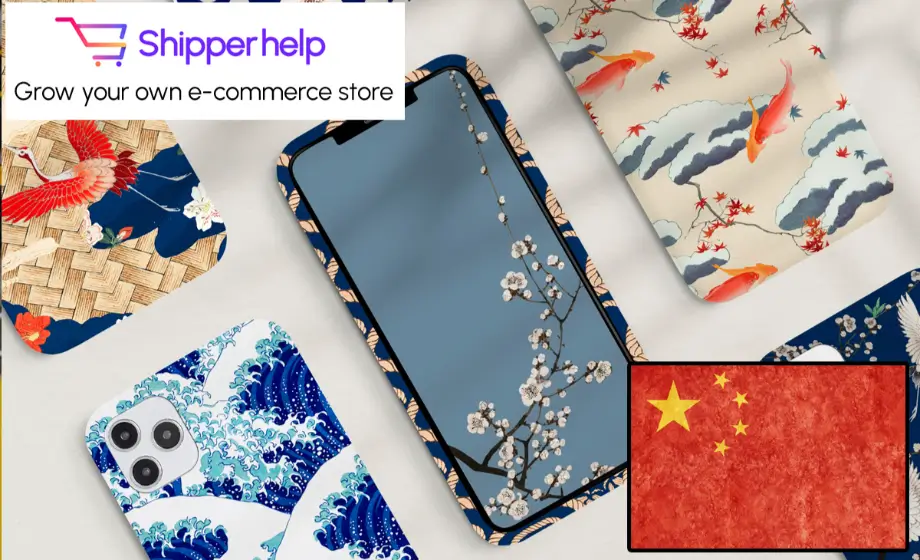
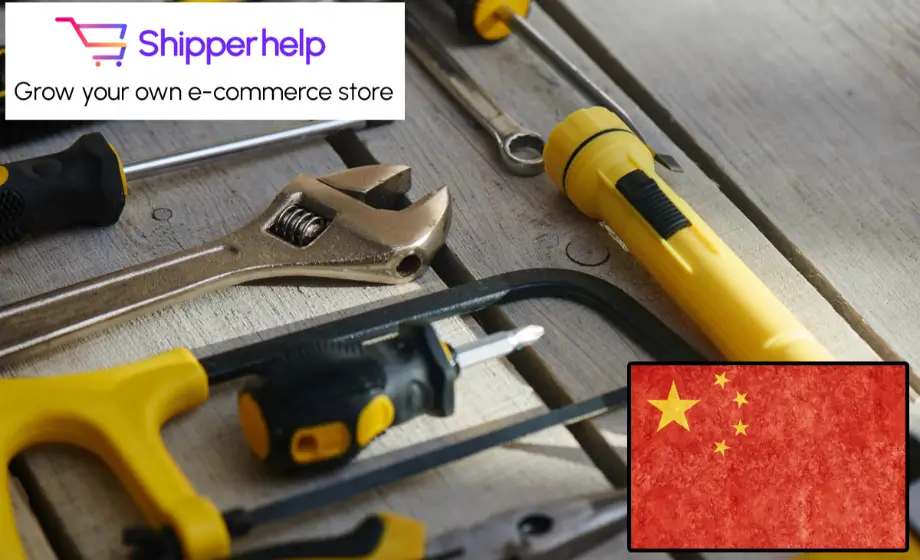
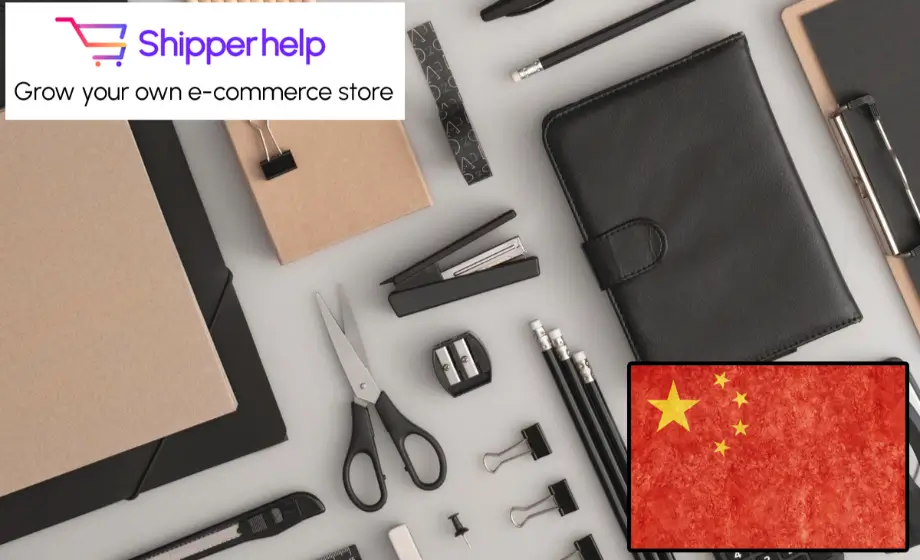
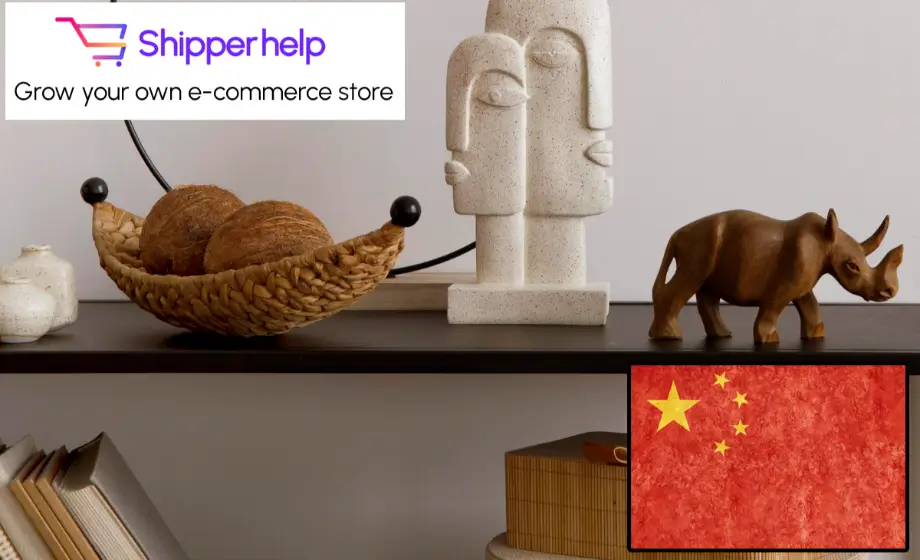
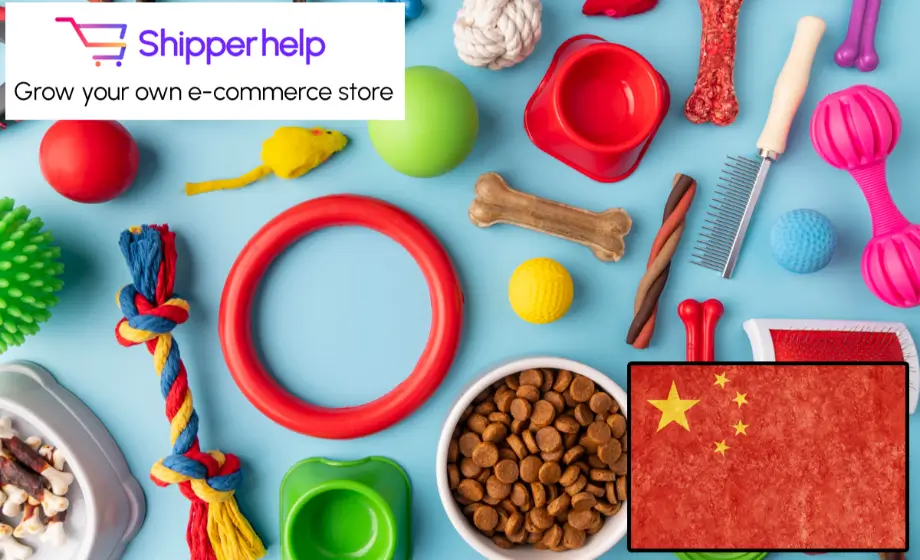
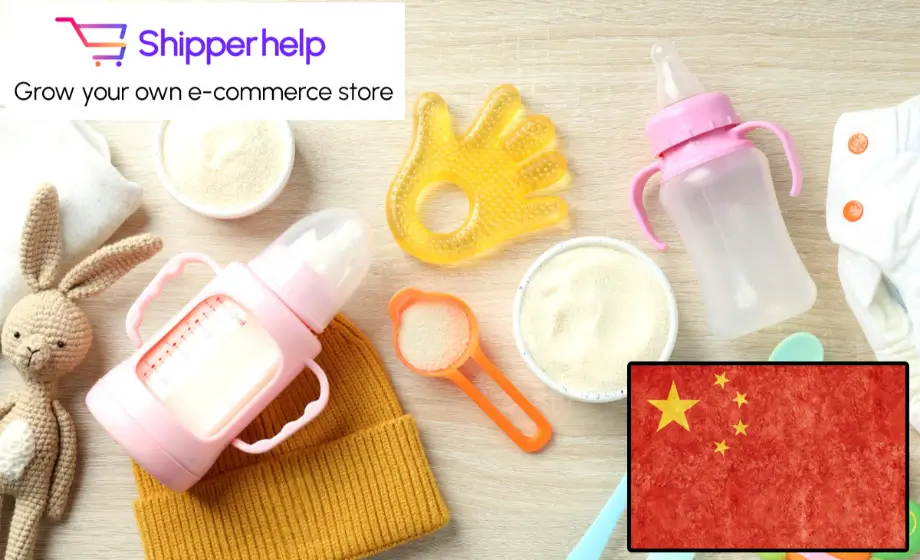


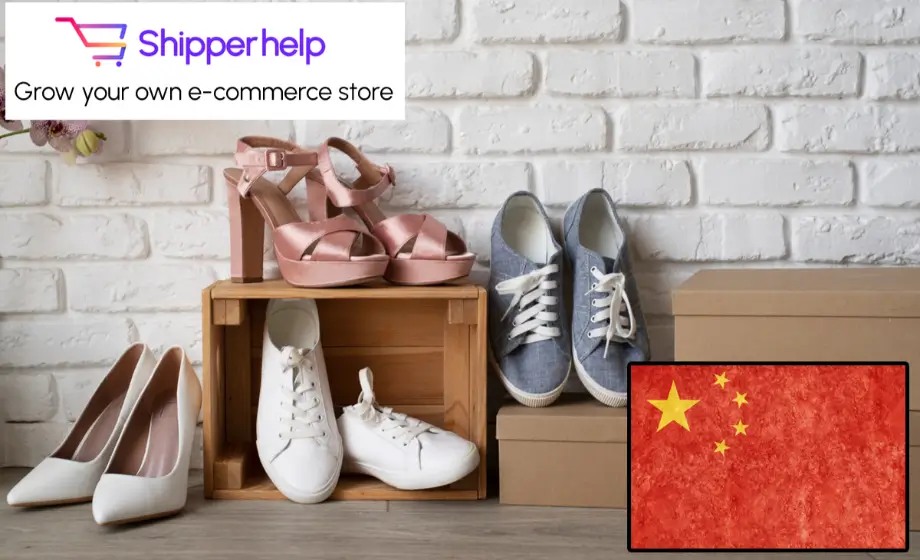
Obtaining a list of dropshipping suppliers is simple. After making a secure payment through online banking, you will immediately receive a link to download the list as pdf.
Here you can find the best products suppliers from Poland, suppliers from Turkey, suppliers from Germany, other Europe countries and around the world. Find yours and start selling in any niche.
Everything is neatly organized so you save time and money by only receiving a list of the suppliers you need. You don't have to browse between erotic suppliers if you own a children's toy store.
Our database has over 1000 suppliers including men's and women's clothing, footwear, children's products, electronics, household, garden, tourism, sports, animal products, and many more.
The list includes a large number of wholesale suppliers in addition to dropship suppliers. If you have enough money saved up, you can buy goods in bulk at a discount and sell them at a higher profit margin.
By agreeing with a particular supplier, you may be able to obtain higher discounts, thus earning a higher commission on sales, or you may be able to offer your customers to buy at competitive prices.
Chinese suppliers have a reputation for offering an extensive range of products, accommodating various industries from technology to textiles. This variety stems from China’s status as the world’s largest exporter, honed by decades of manufacturing experience. Whether you’re seeking electronics, apparel, household items, or specialized machinery, the likelihood is high that you’ll find a Chinese manufacturer or supplier equipped to meet your needs.
One of the key strengths of Chinese manufacturing is its scalability and flexibility. Whether your business is just starting or looking to expand its product lines rapidly, Chinese factories are well-equipped to handle both small custom orders and large-scale production runs. This adaptability is particularly beneficial for businesses looking to scale up quickly in response to market demands.
Despite evolving global trade dynamics, manufacturing in China remains highly competitive in terms of cost-effectiveness without necessarily compromising on quality. Recent economic policies and improvements in manufacturing techniques mean that China continues to offer attractive pricing structures, especially for businesses aiming to maximize their profit margins while maintaining high product standards.
Doing business with Chinese suppliers entails navigating language and cultural differences. Establishing clear and concise communication channels is crucial, and utilizing platforms or intermediaries that can bridge these gaps will significantly streamline the process.
Intellectual property protection remains a concern for many businesses sourcing from China. Ensuring your IP is safeguarded requires understanding China’s legal system or partnering with specialists who can navigate it on your behalf. This precautionary step is vital for maintaining the uniqueness and integrity of your product in the global marketplace.
The internet has vastly simplified the process of finding and vetting Chinese suppliers. Platforms like Shipperhelp offer comprehensive directories of manufacturers and suppliers across a myriad of industries. These platforms not only facilitate easy discovery but also provide tools for verifying supplier credibility and ensuring product quality.
While digital platforms offer convenience, due diligence remains paramount. Prioritizing verified suppliers, requesting samples, and thoroughly reviewing supplier histories and capabilities are essential steps to finding a reliable manufacturing partner. Leveraging trade assurance options and engaging in careful contract negotiations can further safeguard your business interests.
The diversity of products and the constant innovation in Chinese manufacturing mean businesses can often find unique products that cater to emerging market trends or niche demands. The global orientation of Chinese suppliers also means that products designed for international markets tend to meet global standards of quality and appeal.
Sourcing from Chinese suppliers offers a blend of opportunities and challenges. By understanding the vast array of products available, recognizing the potential for scalable growth, and addressing the inherent challenges through careful planning and communication, businesses can forge profitable and sustainable partnerships with Chinese manufacturers. This strategic approach can unlock significant competitive advantages in terms of product diversity, cost efficiency, and market responsiveness.
This category for suppliers from China on ShipperHelp.com offers a diverse range of supplier lists across various categories such as apparel, kitchenware, baby products, phone accessories, pet products, car accessories, tools, office products, home interior, and personal care items. Each list is rated and available for purchase, providing instant access to valuable supplier information upon payment. This setup is designed to simplify the process of finding reliable suppliers by organizing them into well-categorized lists, thus saving time and effort for businesses looking to source products from China.
Finding reliable suppliers from China is crucial for the success of any online store. The right suppliers can offer high-quality products at competitive prices, ensuring customer satisfaction and repeat business. Furthermore, reliable suppliers are essential for maintaining a steady supply chain, minimizing the risk of stock shortages that could harm your business reputation.
China’s manufacturing sector is vast and diverse, offering a wide range of products. However, this abundance can be overwhelming for online store owners. Identifying suppliers who provide quality products, respect intellectual property rights, and offer reasonable production and shipping times is essential.
One effective way to find reliable suppliers from China is through online marketplaces and B2B directories. Platforms such as Shipperhelp.com allow you to browse millions of products and connect with suppliers. These platforms often provide suppliers, which can be invaluable in assessing reliability.
Attending trade shows and fairs can provide direct access to suppliers and their products. Events like the Canton Fair and the Hong Kong Trade Development Council’s trade shows offer opportunities to meet suppliers in person, examine their products, and discuss business terms directly.
Before engaging with a supplier, conduct thorough due diligence. This includes verifying the supplier’s business licenses, certifications, and production capabilities. Additionally, ask for references and samples to assess product quality. Online tools and services can help verify a company’s legitimacy and financial health.
Building a strong relationship with your suppliers can lead to better terms and conditions, improved communication, and quicker resolution of any issues that may arise. Regular visits to their manufacturing facilities, if possible, can also provide deeper insights into their operations and product quality.
Curated supplier lists, like those offered by ShipperHelp.com, can be a valuable resource. These lists have been pre-vetted, saving you time and reducing the risk of engaging with unreliable suppliers. The lists cover various categories and come with ratings and reviews, providing a solid starting point for your supplier search.
Every online store has unique needs, and your supplier strategy should reflect this. Consider factors such as product niche, target market, and business model when selecting suppliers. Utilize supplier lists to find specialized manufacturers that align with your business goals and values.
Finding reliable suppliers from China requires a strategic approach that combines research, due diligence, and leveraging professional resources. By understanding the market, attending trade shows, conducting thorough vetting, and utilizing curated supplier lists, you can establish a strong supply chain that supports your online store’s success. Always remember, the quality of your suppliers directly impacts your brand’s reputation and customer satisfaction, making it a critical aspect of your business strategy.
Minimum Order Quantities, or MOQs, are the lowest set amount of stock that a supplier is willing to sell. When dealing with suppliers from China, MOQs are a common practice due to the mass production model that many manufacturers follow.
Chinese suppliers set MOQs to ensure that the production process remains cost-effective. Producing small quantities can often be more expensive than mass production, leading to higher costs for both the supplier and the buyer.
It’s possible to negotiate MOQs with suppliers. Demonstrating long-term partnership potential or agreeing to pay a higher price per unit can persuade suppliers to lower their MOQs.
Some suppliers may allow smaller initial orders for testing purposes. This approach can be beneficial for both parties, as it reduces risk and builds trust.
Exploring various trade shows, online marketplaces, and supplier directories can uncover suppliers who are willing to work with smaller MOQs, especially those targeting SMEs.
Purchasing at or above the MOQ can significantly reduce the per-unit cost, making your product pricing more competitive in the market.
Meeting or negotiating MOQs can foster a stronger relationship with suppliers, leading to better terms and conditions in the future.
High MOQs can tie up significant capital in inventory, posing cash flow challenges, especially for new or small businesses.
Ordering large quantities without a proven sales channel can lead to overstocking, which is a risk for any business.
Accurate sales forecasting and inventory planning can help businesses make informed decisions about meeting MOQs without overextending their resources.
Working with multiple suppliers can reduce reliance on high MOQs from a single supplier, offering flexibility and mitigating risks.
For businesses looking to avoid holding inventory altogether, dropshipping can be a viable model. While it may not always guarantee the lowest prices, it eliminates the need to meet MOQs.
Meeting MOQs when purchasing from Chinese suppliers requires a strategic approach. By understanding the implications, negotiating effectively, and managing inventory wisely, businesses can turn MOQs from a hurdle into an advantage. Remember, every supplier is unique, and developing strong relationships is key to successful negotiations and long-term success.
This guide offers a comprehensive look at dealing with minimum order requirements when sourcing from Chinese suppliers, providing actionable strategies to navigate and leverage these challenges effectively.
In today’s market, the call for eco-friendly and sustainable products has never been louder. Consumers are increasingly mindful of the environmental impact of their purchases, driving demand for green solutions across industries. This shift is particularly noticeable in China, where a significant portion of the world’s manufacturing takes place.
China has seen a remarkable increase in the number of manufacturers dedicated to sustainable and eco-friendly practices. These range from packaging and fabric manufacturers to companies specializing in organic and biodegradable products. This transformation aligns with global trends towards sustainability and the demands of environmentally conscious consumers.
Companies like Jiangsu Yopack Packaging and Shanghai Yifu Packing Products Co., Ltd are at the forefront, offering biodegradable tableware, recyclable materials, and innovative packaging solutions designed to minimize environmental impact . With advancements in sustainable packaging, these suppliers demonstrate China’s capacity to meet global eco-friendly standards.
The rise of eco-friendly dropshipping suppliers such as White Lotus Home and Davison’s Organics highlights the broadening spectrum of sustainable products available from China. From organic teas and herbs to home and bedding solutions, these suppliers cater to a growing market looking for green alternatives.
Manufacturers like this Packaging emphasize biodegradable options for industries such as food, pet care, and more, showcasing a commitment to reducing plastic waste and promoting compostable materials.
The textile industry is not left behind, with manufacturers focusing on sustainable fabrics. These suppliers utilize organic cotton, hemp, linen, and recycled materials, proving that eco-friendly choices do not compromise quality or style.
Innovations by companies like Amcor in recycle-ready packaging and the development of post-consumer recycled (PCR) content demonstrate the technological strides being made in sustainable packaging. Such efforts are crucial for reducing the carbon footprint of products from production to disposal.
E-commerce platforms in China are playing a significant role in educating consumers about sustainable products and making eco-friendly options more accessible. This educational approach is crucial for fostering a culture of sustainability and making green choices more straightforward for consumers.
The availability of eco-friendly and sustainable suppliers from China on platforms like ShipperHelp is a testament to the significant strides being made towards environmental stewardship in manufacturing and commerce. By supporting these suppliers, consumers and businesses alike contribute to a more sustainable future, demonstrating the powerful role of ethical sourcing in today’s global market.
Unmatched Manufacturing Capabilities Sourcing products from Chinese suppliers offers businesses access to the world’s largest manufacturing hub. China’s extensive manufacturing industry is renowned for its capacity to produce a vast array of products, from electronics to apparel, at significant scales. This capability ensures that businesses can meet demand surges without compromising on production timelines.
Cost-Effective Production Solutions Cost efficiency is a primary advantage of partnering with Chinese suppliers. Due to economies of scale, optimized manufacturing processes, and lower labour costs, Chinese manufacturers can offer competitive pricing that significantly reduces production expenses. This benefit allows companies to allocate resources more effectively, enhancing overall profitability.
Diverse Supplier Ecosystem China boasts a diverse range of suppliers across various industries, enabling businesses to find specialized manufacturers that align with their specific product requirements. This diversity not only facilitates customization and innovation but also provides alternatives and backups, ensuring supply chain resilience.
Rapid Prototyping and Flexibility The agility of Chinese suppliers in prototyping and adapting to new designs is a critical asset for businesses looking to innovate rapidly. This flexibility supports shorter product development cycles, enabling quicker market entry and the ability to respond to emerging trends effectively.
Access to Advanced Technologies and Materials Many Chinese suppliers are at the forefront of technological advancements and materials science, offering businesses access to cutting-edge production techniques and superior materials. Leveraging these resources can enhance product quality and functionality, distinguishing your offerings in the market.
Streamlined Logistics and Global Reach China’s advanced logistics networks and strong global trade links facilitate efficient international shipping and handling. Partnering with Chinese suppliers simplifies the logistics of getting products to market, regardless of your company’s location. This logistical efficiency can significantly shorten lead times and improve customer satisfaction.
Collaboration Opportunities for Innovation Collaborating with Chinese suppliers can open doors to innovation through shared expertise and insights into manufacturing advancements. Many suppliers are willing to engage in collaborative product development efforts, which can lead to unique products and improved manufacturing processes.
Building Long-term Strategic Partnerships Establishing strategic partnerships with suppliers in China can yield long-term benefits, including loyalty discounts, priority production scheduling, and access to exclusive materials or technologies. These relationships foster mutual growth and can provide a competitive advantage.
Quality Assurance and Control Measures While sourcing from China offers numerous advantages, ensuring product quality is a common concern. Implementing strict quality control measures, conducting regular supplier audits, and leveraging third-party inspection services can help maintain high standards and minimize the risk of defects.
Cultural and Communication Considerations Effective communication is crucial in overcoming cultural differences and ensuring clear understanding between businesses and Chinese suppliers. Employing bilingual professionals or working with experienced intermediaries can facilitate smoother negotiations and project management.
Staying Ahead of Regulatory Compliance Navigating the regulatory landscape is essential when importing from China. Familiarity with import regulations, tariffs, and compliance standards in your home country and China can prevent legal issues and ensure smooth customs clearance.
Leveraging Supplier Networks for Market Expansion Chinese suppliers often have extensive networks that can provide valuable market insights and opportunities for expansion. Engaging with your suppliers beyond transactional relationships can uncover new avenues for growth and market penetration.
In summary, sourcing from Chinese suppliers offers a wealth of benefits that can enhance competitive advantage, innovation, and profitability. By understanding and addressing the challenges, businesses can forge successful partnerships and realize the full potential of their collaborations with Chinese manufacturers.
Negotiating prices with Chinese suppliers requires a strategic approach, blending cultural understanding, market knowledge, and effective communication. By implementing these expert strategies, you can secure favourable prices while maintaining quality and building long-term partnerships.
Before entering negotiations, assess the market and your supplier’s position within it. Initial Factory Evaluation (IFE) audits reveal a supplier’s capabilities, order backlog, and operational health. A supplier bustling with orders might show less flexibility in price negotiations, whereas one eager for business may offer better terms. Monitoring the market by obtaining quotes from around five suppliers gives insight into the reasonable market price, enabling informed negotiation.
Leveraging volume is a classic but effective tactic. Larger order quantities typically fetch lower unit prices due to economies of scale. Consider your annual purchase volume instead of a single transaction to negotiate better terms. Suppliers value long-term business prospects and may offer discounts to secure a larger, ongoing relationship.
Set clear, realistic quality standards from the outset. Understanding the cost implications of different materials and components can help avoid unnecessary customization costs, which inflate prices. Suppliers are more willing to negotiate prices when they see a commitment to quality and a mutual interest in maintaining product standards.
Adjusting payment terms can lead to better discounts. A higher initial deposit or favourable terms may incentivize suppliers to lower prices. Building trust by sharing business plans and market insights can also persuade suppliers of your seriousness and potential for a long-term partnership.
Hiring a bicultural local agent or using a sourcing company that understands both Western business practices and Chinese cultural nuances can be invaluable. These agents facilitate smoother negotiations, help overcome language barriers, and provide on-the-ground support, ensuring that your requirements are communicated and met.
Exploring alternative suppliers and engaging in competitive bidding puts pressure on your current suppliers to offer more favourable terms. However, this should be done judiciously to maintain good supplier relationships and ensure that quality standards are not compromised for lower prices.
Familiarizing yourself with the legal and regulatory environment relevant to your imports from China can prevent potential pitfalls and streamline the negotiation process. Knowing the necessary certifications, standards, and regulations ensures compliance and can be a leverage point in discussions.
Negotiating with Chinese suppliers is a multifaceted process that goes beyond mere price discussion. It involves strategic planning, understanding of the supply chain, and building relationships based on trust and mutual benefit. By employing these strategies, businesses can achieve not only competitive pricing but also quality assurance and reliable supply chain partnerships.
Before diving into bulk orders, acquiring samples from Chinese suppliers is a prudent step. This process ensures that the product meets your expectations in terms of quality, design, and functionality. Samples serve as a tangible representation of what you will be investing in, offering a firsthand look at the product before committing to a larger order.
The landscape of obtaining samples from Chinese suppliers encompasses a range of options, from existing products within the factory to custom product samples tailored to your specific requirements. Factories often display an array of products in their showrooms, showcasing their production capabilities and the materials they utilize. This approach offers a direct insight into the manufacturer’s capacity and the quality you can expect.
For products that are still in the conceptual phase, a custom sample becomes essential. This involves a collaboration with the manufacturer to bring your concept to life, thereby verifying the supplier’s manufacturing capabilities.
Gold Samples: Factories may send their best quality sample, often made from the most expensive materials and by the most skilled workers, to impress potential clients. While these “gold samples” demonstrate the highest standard of production, they may not accurately represent mass production quality.
Random Samples: These are selected from the mass production line and provide a realistic picture of the average product quality.
Virtual and Counter-Samples: Virtual samples, created using digital rendering software, and counter-samples, which are physical products modified according to the buyer’s specifications, also play a vital role in the sampling process.
The cost of obtaining samples can vary, generally being higher than the unit cost in mass production due to the lack of economies of scale and the factory’s intention to filter out non-serious buyers. For basic products, you might only need to cover the shipping costs, whereas customized samples might involve additional charges for new tooling or materials.
It’s common practice to negotiate the sample cost as deductible from the bulk order cost, aligning interests and demonstrating a commitment to a potential long-term partnership.
Protecting your design and brand is paramount when ordering samples. While sharing product information with suppliers is necessary for sample creation, concerns about design theft are legitimate. Using NDAs can offer some level of protection, though enforcing them across jurisdictions can be challenging. Registering patents and trademarks in major markets, including China, is advisable, despite the cost and effort involved.
Effective communication of your product specifications is crucial. This includes detailed design drawings, material specifications, and any other relevant documentation. Ensuring your requirements are clearly understood can help prevent misunderstandings and lead to a more satisfactory sample.
Selecting the right supplier is a multi-step process involving initial research, assessing the supplier’s credibility, production capacity, and communication skills. Utilizing online platforms, attending trade shows, and considering recommendations are effective strategies for finding reliable suppliers.
When it comes to shipping samples, understanding the associated costs, customs duties, and logistics is important. Opting for air cargo might offer speed but at a higher cost, while sea freight provides a more economical option.
Procuring samples from Chinese suppliers is a strategic step in ensuring product quality and compatibility with your business goals. By understanding the types of samples available, managing costs, and effectively communicating your requirements, you can lay the groundwork for a successful import business. Remember, each sample is an investment in your product’s future success, offering insights and opportunities to refine and perfect your offerings before launching them into the market.
Chinese suppliers have carved out a significant niche in the electronics and gadgets market, offering a wide range of products from smartphones and laptops to drones and action cameras. Gearbest, for instance, is highly recognized for its expansive selection of up-to-date electronics, including rare and slightly older models that are often difficult to find elsewhere. This category not only caters to individual consumers but also to businesses looking to stock up on the latest tech trends.
Fashion stands out as another leading category among Chinese suppliers, with a vast array of clothing, accessories, luxury bags, and more. Platforms like Yaaku specialize in wholesale fashion, offering everything from everyday wear to high-end luxury bags, making it a go-to for retailers seeking to diversify their fashion offerings. The fashion sector includes sportswear, underwear, T-shirts, dresses, and children’s apparel, among others.
The home and garden segment encompasses a broad range of products aimed at enhancing living spaces and outdoor areas. Suppliers offer everything from disposable products, household plastics, and baby diapers to garden tools and pest control solutions. This category caters to both individual consumers and businesses looking for quality home improvement and maintenance products.
The automotive category is robust, featuring a wide selection of parts and accessories for cars, motorcycles, and more. This includes auto electrical systems, car electronics, motorcycle engine parts, and car maintenance tools. Whether you’re an auto repair shop looking to stock up on parts or an individual seeking to customize your vehicle, Chinese suppliers offer a comprehensive range of products to meet your needs.
For those in the industrial sector or involved in B2B transactions, Chinese suppliers offer a plethora of products tailored to your needs. This includes heavy industrial equipment, electronics wholesale, auto parts, manufacturing parts, and lighting. This category is particularly beneficial for businesses seeking reliable and cost-effective solutions for their operational needs.
Chinese suppliers also excel in offering a variety of consumer goods, including but not limited to personal care products, pet supplies, and baby products. This broad category ensures that businesses and consumers alike can find nearly everything they need, from everyday essentials to specific niche items.
Despite the extensive range of products available, it’s important to note that customization options may be limited, especially for smaller orders. However, platforms like AliExpress and DHgate provide robust buyer protection plans, ensuring a secure purchasing experience.
When sourcing products from Chinese suppliers, it’s crucial to consider factors such as minimum order quantities (MOQs), quality control, shipping options, and payment methods. Many platforms offer a variety of shipping methods and payment options to accommodate different buyer needs, and MOQs can vary significantly depending on the supplier and product category.
In conclusion, Chinese suppliers offer a vast array of products across multiple categories, catering to a wide range of consumer and business needs. From cutting-edge electronics and fashionable apparel to essential home goods and industrial supplies, the diversity and quality of products available make China a leading source for wholesale purchases.
Product customization refers to the process of altering a product’s design, features, or components according to specific customer requirements. This practice is especially prevalent in manufacturing sectors, including textiles, electronics, and bespoke goods, offering businesses a competitive edge by catering to unique customer needs.
Chinese suppliers are renowned for their flexibility in product customization. This adaptability stems from China’s vast manufacturing ecosystem, characterized by extensive networks of factories, skilled labor, and advanced production technologies. This environment facilitates a wide range of customization options, from simple design tweaks to complete overhauls of existing products.
When partnering with Chinese suppliers through platforms like ShipperHelp, businesses can explore various customization avenues, including material selection, color schemes, branding elements (logos and packaging), and functional modifications. Such customizations enable brands to align products more closely with their market strategy and brand identity.
The customization journey begins with a detailed discussion between the buyer and the supplier. This stage involves outlining the specific customization requirements, including design sketches, technical specifications, and desired outcomes. Clear communication is crucial to ensure both parties have a shared understanding of the project scope.
Before mass production, a prototype or sample is developed to provide a tangible representation of the customized product. This step is critical for assessing the feasibility of the customization and making any necessary adjustments. Approval of the sample is a green light for proceeding with full-scale production.
Once the sample is approved, production commences. Throughout this phase, stringent quality control measures are in place to ensure the final products meet the agreed-upon specifications. After production, the goods undergo a final inspection before being shipped to the buyer.
Customized products allow businesses to stand out in a crowded market. By offering unique products that reflect a brand’s ethos and customer preferences, companies can foster stronger customer loyalty and attract a more targeted customer base.
Customization enables businesses to respond swiftly to market trends and customer feedback. This agility can be a significant advantage in industries where consumer preferences evolve rapidly.
Customized products often carry a higher perceived value, allowing businesses to command premium prices. The exclusivity and tailored approach of customized goods appeal to consumers looking for products that cater to their specific needs and tastes.
Customization can lead to higher production costs and longer lead times. Businesses need to carefully balance the desire for customization with cost efficiency and market demand. Effective planning and communication with the supplier are essential to mitigate these challenges.
Maintaining consistent quality in customized products is paramount. Businesses should establish clear quality standards and work closely with suppliers to ensure these standards are met throughout the production process.
When customizing products, intellectual property (IP) considerations become critical. Businesses should ensure they have the necessary rights to the designs and trademarks being used and take steps to protect their IP in the manufacturing country.
ShipperHelp connects businesses with reputable Chinese suppliers capable of offering extensive customization options. The platform’s vetting process ensures that listed suppliers have a proven track record of delivering high-quality, customized products.
Success in product customization requires more than just technical capabilities; it demands a strong partnership between the buyer and the supplier. ShipperHelp fosters this partnership by facilitating clear communication, providing transparent processes, and offering guidance on best practices for customization.
In conclusion, product customization offers a pathway to differentiation, customer satisfaction, and market success. By understanding the nuances of customizing products with Chinese suppliers and leveraging platforms like ShipperHelp, businesses can unlock the full potential of customization to meet their strategic goals.
When sourcing products from suppliers in China, understanding the payment terms is crucial for ensuring a smooth and secure transaction. Payment terms define how and when payments are to be made from the buyer to the supplier. They play a significant role in managing cash flow and reducing financial risks for both parties involved. Here, we will explore the common payment terms used by Chinese suppliers, along with strategic advice to navigate these terms effectively.
The Prevalence of T/T in International Trade
T/T, or Telegraphic Transfer, is one of the most common payment methods used when dealing with suppliers in China. This involves a direct bank-to-bank transfer of funds from the buyer’s account to the supplier’s account. Typically, T/T payments are divided into two parts: a deposit (usually around 30%) paid upfront upon order confirmation, and the balance (the remaining 70%) paid before shipment of the goods.
Strategy Tip: To minimize risk, negotiate terms where a significant portion of the payment is made after production but before shipment. This way, you can ensure product quality through inspections before making the full payment.
Mitigating Risks with L/C
An L/C, or Letter of Credit, offers a higher level of security compared to T/T. It involves a commitment by the buyer’s bank to pay the supplier, provided that the supplier presents the stipulated documents (like a bill of lading) proving the goods have been shipped. L/Cs are particularly useful for larger orders or when dealing with a new supplier.
Strategy Tip: While L/Cs offer more security, they also come with higher banking fees. They are best used for substantial transactions or when you need to ensure that payment is only made upon confirmation of shipment.
The Convenience of Online Payments
For smaller transactions or samples, PayPal and other online payment platforms are often used due to their convenience and the buyer protection they offer. These platforms allow for quick and secure payments but may involve higher transaction fees.
Strategy Tip: Use online payment methods for sample orders or small transactions to take advantage of buyer protection services. Be mindful of the fees involved and discuss with the supplier who will bear these costs.
Building a Relationship with Suppliers
Building a strong relationship with your suppliers is key to negotiating favourable payment terms. Suppliers are more likely to offer better terms to buyers they trust and have a history with. Initial orders might require stricter terms, but as the relationship develops, more favourable terms can be negotiated.
Leverage Your Order History
Use your order history and volume as leverage in negotiations. Suppliers are more inclined to offer favourable terms for larger or recurring orders. Demonstrating a commitment to long-term business can open the door to better payment arrangements.
Verifying Supplier Credibility
Before agreeing to any payment terms, conduct thorough due diligence on the supplier. This includes verifying their business licenses, checking references, and assessing their financial stability. Utilizing third-party verification services or visiting the factory in person can provide additional security.
The Role of Escrow in Trade Security
For added security, consider using escrow services, especially when dealing with new suppliers or large transactions. Escrow services hold the payment until both the buyer and seller fulfill their parts of the deal, adding a layer of protection against non-delivery or substandard product quality.
Navigating payment terms with suppliers in China requires a careful balance between risk management and fostering positive supplier relationships. By understanding the common payment terms and employing strategic negotiation tactics, businesses can secure terms that protect their interests and support a healthy cash flow. Always prioritize due diligence and consider the use of secure payment methods or services to mitigate risks further. With the right approach, establishing secure and efficient payment terms with your Chinese suppliers can significantly contribute to the success of your international trade endeavours.
Customs and import duties are taxes imposed by governments on goods as they enter a country. These taxes are usually calculated as a percentage of the value of the goods, their type, and their country of origin. The main purpose of these duties is to raise state revenue and protect domestic industries from foreign competition.
When importing goods from China, it’s crucial to understand that customs and import duties can significantly affect the total cost of your shipments. Not accounting for these costs can lead to unexpected expenses, reducing your profit margins or making your products uncompetitive in your home market. Additionally, compliance with customs regulations is essential to avoid delays, penalties, or seizure of goods.
Calculating customs and import duties involves several factors, including the value of the goods, the Harmonized System (HS) code, and the duty rates applicable in your country for goods imported from China. The HS code is a standardized numerical method of classifying traded products and is used by customs authorities around the world to identify products when assessing duties and taxes.
Regulations and duty rates are subject to change. Regularly check the customs regulations of both the exporting (China) and importing countries to stay up-to-date with any changes that may affect your shipments.
Many countries have FTAs with China that can lower or eliminate customs duties on certain goods. Investigate whether your products qualify under an FTA, and ensure you comply with the rules of origin and other requirements to take advantage of reduced tariffs.
Some countries offer duty drawback schemes, allowing exporters to claim a refund on customs duties paid on imported goods that are subsequently re-exported. Explore whether this is an option for your business model.
A knowledgeable freight forwarder or customs broker can help navigate the complexities of international shipping, including customs clearance and duty calculations. They can offer valuable advice on minimizing costs and ensuring compliance.
Besides customs duties, consider other taxes (such as value-added tax or sales tax) and additional costs (like inspection fees or quarantine costs) that might apply to your imports. Incorporating these into your budget from the start will provide a clearer picture of your total landing costs.
Review your supply chain for efficiency. Sometimes, restructuring your supply chain or sourcing strategy can reduce customs duties. For example, sourcing components from countries with favorable trade agreements with your country might lower the overall duty payable.
Ensuring proper compliance with all regulations and maintaining accurate documentation is paramount. This includes correctly classifying goods, accurately declaring their value, and keeping records of all transactions and communications with customs authorities. Non-compliance can lead to audits, fines, or even legal action.
Customs and import duties are an integral aspect of international trade, especially when importing from China. By understanding how these duties are calculated and what strategies can be employed to manage them effectively, businesses can save time, reduce costs, and avoid potential legal issues. Always consider seeking advice from trade experts or customs brokers to navigate the complexities of customs regulations and duties.
When entering into agreements or negotiations with suppliers from China, one of the pivotal concerns that many businesses face revolves around the protection of intellectual property (IP). This encompasses patents, trademarks, copyrights, and trade secrets, all of which are crucial for maintaining competitive advantage and brand integrity. The complexities of international law and the specific challenges presented by the Chinese legal framework make it essential for companies to adopt strategic and informed approaches to safeguard their intellectual property.
Before engaging with any suppliers, it’s critical to conduct comprehensive research and due diligence. Understand the legal environment of intellectual property rights (IPR) in China, which has been evolving to offer stronger protection for foreign businesses. However, enforcement can still be challenging. Research potential suppliers’ history with IP issues, if any, and their reputation in the market.
Ensure that your intellectual property is registered and protected in your home country before you begin negotiations or share any sensitive information with Chinese suppliers. Moreover, considering the territorial nature of IP laws, you should also register your IP in China through the appropriate Chinese authorities, such as the China National Intellectual Property Administration (CNIPA). This dual-layer protection serves as a critical foundation for enforcing your rights.
When drafting contracts with Chinese suppliers, clarity and comprehensiveness in outlining IP ownership and usage rights are key. Make sure to include non-disclosure agreements (NDAs) and non-compete clauses where appropriate. It’s advisable to consult with legal professionals who specialize in Chinese law and international IP protection to ensure that your contracts are enforceable under local laws.
If technology transfer is part of your arrangement with a Chinese supplier, use technology transfer agreements (TTAs) to specify the terms of what is being shared, how it can be used, and the duration of the agreement. These agreements can provide an additional layer of protection for your IP.
Establish a schedule for regular audits and inspections of your Chinese suppliers’ facilities to ensure compliance with IP protection clauses in your contracts. These visits can serve as both a deterrent against IP infringement and a method for detecting any potential issues early on.
Be prepared to take legal action if you discover any infringement of your IP rights. Working with local legal experts can expedite the process of navigating the Chinese legal system. Additionally, consider specifying arbitration as the preferred method of dispute resolution in your contracts, as it can often be a quicker and more efficient way to resolve disputes than going through the local courts.
Use technology to your advantage by implementing track and trace systems that monitor the flow of your products. This can help in detecting and preventing unauthorized use of your IP, such as counterfeit goods entering the market.
In the digital age, protecting your IP also means securing your data and communication. Employ robust cybersecurity measures to safeguard sensitive information and ensure that communication with your suppliers is encrypted and secure.
Building strong, long-term relationships with your Chinese suppliers can be one of the most effective strategies for IP protection. Suppliers who view your success as integral to their own are less likely to jeopardize the relationship by infringing on your IP rights. Regular communication, mutual respect, and fair dealing contribute to a positive partnership.
Invest time in educating your Chinese suppliers about the importance of IP rights and the mutual benefits of protecting these rights. A well-informed supplier is more likely to respect your IP and take proactive steps to avoid infringement.
Protecting intellectual property when dealing with Chinese suppliers requires a multifaceted approach that includes legal preparedness, strategic planning, and building strong partnerships. By taking proactive steps to secure IP rights, drafting clear legal agreements, monitoring compliance, and fostering a culture of mutual respect and understanding, businesses can mitigate the risks associated with IP infringement and build successful, long-lasting relationships with their suppliers in China.
When engaging with Chinese suppliers, understanding the common languages spoken and the necessity of translation services is crucial for smooth business operations. China, a major player in global trade, primarily conducts business in Mandarin, the official state language. However, the linguistic landscape can vary significantly across different regions and business settings.
Mandarin is the predominant language used by Chinese suppliers in both formal and informal business communications. Possessing a basic understanding of Mandarin or having access to bilingual business cards can greatly facilitate initial introductions and meetings. While English is increasingly taught in schools and used in international business, the proficiency levels among suppliers can vary widely.
In larger cities and among established companies, English proficiency is more common, especially in businesses that frequently deal with international clients. Many larger suppliers have staff members or departments dedicated to handling international communications, reducing the immediate need for a translator. However, the level of English fluency can still vary, and complex negotiations or technical discussions may require clearer, more precise language than what non-native speakers can provide.
Cantonese, another significant language in China, is predominantly spoken in Guangdong Province and Hong Kong. While not as commonly used in manufacturing and export as Mandarin, understanding Cantonese can be beneficial when dealing with suppliers and businesses in these areas. Other regional dialects are less likely to be encountered in international trade contexts but are worth noting when visiting suppliers in specific locales.
Determining whether you need a translator depends on several factors, including the complexity of your negotiations, the level of English proficiency of your Chinese counterparts, and your comfort level with potential language barriers. While basic communications and small transactions can often be managed without fluent Mandarin, more significant agreements, especially those involving technical details or legal contracts, usually necessitate professional translation services.
A professional translator can do more than merely facilitate communication; they can also provide cultural insights and negotiation advice, ensuring that both parties fully understand the terms and conditions being discussed. This understanding can be particularly valuable in avoiding misunderstandings that could lead to disputes or flawed agreements.
For businesses looking to minimize costs or those dealing with straightforward transactions, several alternatives to hiring a full-time translator exist. Translation apps and software have seen significant improvements in accuracy and usability, offering a viable option for simple conversations and document translations. Additionally, hiring freelance translators for specific tasks or negotiations can provide the necessary linguistic support without the commitment of a full-time position.
Investing in language training for key staff members can be a long-term strategy to reduce dependency on external translators. Basic Mandarin courses, focusing on business terminology and cultural etiquette, can significantly enhance your team’s ability to communicate effectively with Chinese suppliers. Additionally, creating a glossary of commonly used industry and trade terms in both English and Mandarin can serve as a valuable resource for your business.
Leveraging technology can also bridge the language gap. Email communication, which allows for careful translation and consideration of words, is often preferred for detailed discussions. Video conferencing tools with real-time translation features are becoming more sophisticated, offering another avenue for overcoming language barriers.
In summary, while Mandarin is the primary language of business in China, the need for a translator varies based on the supplier’s English proficiency, the complexity of the business dealings, and your own language skills. Understanding the linguistic landscape, assessing communication needs carefully, and utilizing available resources and technology can significantly enhance your interactions with Chinese suppliers, leading to more successful business outcomes.
Find out what other people think
As a boutique owner, I'm always looking for high-quality, unique beauty products. The German suppliers list from Shipperhelp introduced me to some fantastic brands I now proudly stock. My customers are thrilled, and so am I. Un grand merci à Shipperhelp!.
Purchased: Perfume and beauty products suppliers information from Germany
Absolutely thrilled with the Dropshipping list from Poland I got from Shipperhelp! It was my first foray into e-commerce, and this list made it so easy to start. Found some incredible suppliers with unique products that really stand out. My store's getting great traffic thanks to this. Highly recommend.
Purchased: Various suppliers information (Dropshipping) from Poland
Finding reliable electronics suppliers can be daunting. Shipperhelp's list was a game-changer for me. High-quality suppliers with a wide range of products at competitive prices. My tech store's inventory has never looked better
Was skeptical at first about buying a suppliers list online, but Shipperhelp's furniture list from Poland was a pleasant surprise. Found exactly what my store needed - quality furniture at good prices. Easy process, great results.
Purchased: Furniture suppliers information from Poland
Expanding my gift shop's inventory with unique items was easy with Shipperhelp's Polish suppliers list. Exceptional variety and creativity in products. My sales have gone up. Serdecznie dziękuję, Shipperhelp!
Purchased: Gifts and souvenirs suppliers information from Poland
Finding top-notch organic suppliers was crucial for my health-focused e-commerce. The Polish suppliers list from Shipperhelp was a goldmine of quality and reliability. My customers are delighted with the variety and quality. Shipperhelp is an invaluable resource
Purchased: Organic food and supplement suppliers information from Poland
Finding safe and educational toys for my online store was a priority. The Polish suppliers list from Shipperhelp offered just that. Quality toys that parents trust and kids love. Suur tänu, Shipperhelp, for making this possible
Purchased: Kids toys suppliers information from Poland
Expanding my pet store with unique and quality products was made easy with the Turkish suppliers list from Shipperhelp. Our furry friends and their owners are thrilled. Shipperhelp is fantastic selection
Introducing luxury German beauty products into my boutique significantly uplifted my brand. Shipperhelp's suppliers list was key to sourcing these high-quality items. My customers love the new range. Didelis ačiū
Purchased: Perfume and beauty products suppliers information from Germany
Simply fill out the inquiry form, and one of our specialists will contact you with a customized offer and answers to all your questions. Get a professional online store with all needed integrations! We also provide product import / export from XML or other files, product translation and shop maintenance services.
Enter your email below to get news about the latest shipping lists and interesting insights.